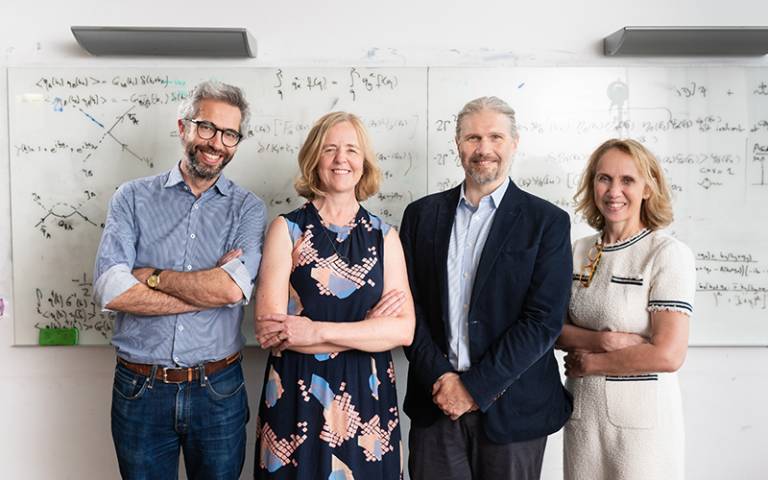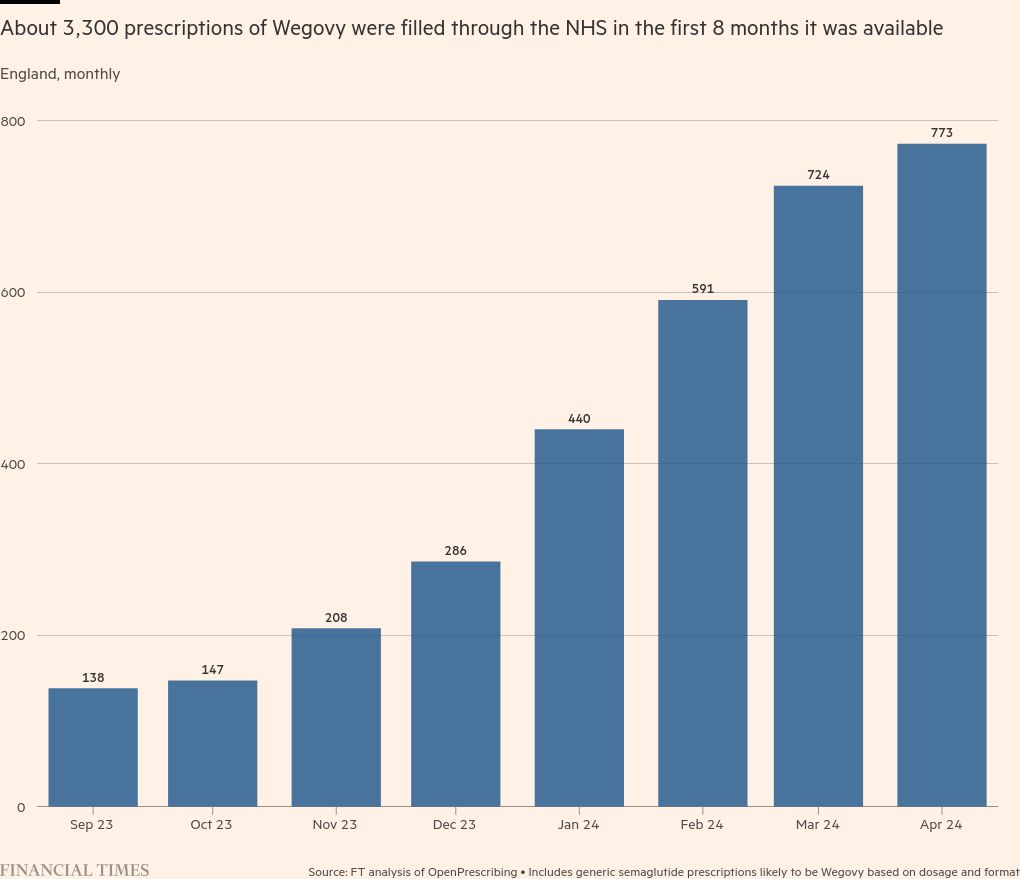A major new research center led by UCL and the University of Cambridge aims to harness quantum technology to improve early diagnosis and treatment.

The center is called Q-BIOMED, It is one of five quantum research centers supported by £160 million in funding, announced today by Peter Kyle MP, Secretary of State for Science, Innovation and Technology.
The center aims to exploit advances in quantum sensors capable of detecting cells and molecules, potentially orders of magnitude more sensitive than traditional diagnostic tests.
These include the development of quantum-enhanced blood tests to quickly and cost-effectively diagnose infectious diseases and cancer using portable devices, and sensors that measure small changes in the brain’s magnetic fields capable of detecting early signs of Alzheimer’s before symptoms develop.
Other research includes quantum-enhanced MRI scans, heart scanners, and surgical and therapeutic interventions for early-stage and difficult-to-treat cancers.
Professor Rachel McKendree, Co-Director of the new Center for Nanotechnology and Medicine at UCL’s London Center, said: “Q-BIOMED is an exciting new quantum research center that brings together two areas of science in the UK. world-leading – quantum and biomedical sciences – and positions us at the global forefront of this exciting new field.
“Ours The hub aims to develop a A new quantum for health The UK’s innovation ecosystem, and the UK’s new Quantum Mission for Health, are already taking shape. Our long-term vision is to accelerate the entire innovation pipeline from discovery research to translation, adoption and implementation within the NHS and global health systems for patient benefit and social good.
“Earlier detection of diseases like cancer will unlock a paradigm shift in health, allowing for more rapid access to life-saving treatments and better health outcomes. More rapid, sensitive and accessible diagnostic tests could help reduce waiting lists and ease pressure on the NHS..”
Co-Director Prof. Methe shape, From the University of Cambridge said: “Quantum technology exploits quantum physics to achieve scientifically derived functionality that cannot be explained by classical physics, or performance that is otherwise unattainable.
“Q-BIOMED will be delivered by an outstanding team of researchers from academia, the NHS, charities, government and industry to harness quantum-enhanced advances for human health and social good.”
The five newly announced centers will be delivered by the UKRI Engineering and Physical Sciences Research Council (EPSRC), with a £106m investment from EPSRC, the UKRI Biotechnology and Life Sciences Research Council, the UKRI Medical Research Council and the National Institute for Health and Care has. research. This adds to contributions from industry and other partners worth more than £54m.
Peter Kyle, Secretary of State for Science, Innovation and Technology, said: “We want to see a future where cutting-edge science improves everyday life. The vision behind our investment in these new quantum technology centers is to support the deployment of technology that provides rapid diagnostics for disease, critical infrastructure that protects against hostile threats, and clean energy for us all.
“This is not just research; It’s about putting that research into action. These hubs will bridge the gap between bright ideas and practical solutions. Not only will they transform sectors like healthcare and security, but they will also create a culture of rapid innovation that will help grow our economy.
The Q-BIOMED center brings together researchers from UCL and Cambridge, Oxford, Warwick Cardiff and Heriot Watt universities, as well as researchers from NHS trusts, industry partners and charities.
Only at UCL, the hub includes biomedical researchers, cardiologists, healthcare engineers and neuroscientists from the faculties of UCL Medicine, UCL Mathematics and Physics, UCL Engineering, UCL Engineering and a wide range of disciplines, along with quantum experts, physicists and chemists. . Brain Sciences and UCL Population Health Sciences.
UCL Vice-Provost (Research, Innovation and Global Engagement) Professor Geraint Rees said: “We are delighted to congratulate Professor Rachel McKendree on her leadership of this flagship center for health and the emerging field of quantum medicine. The whole team for this amazing victory.
“UCL is home to the largest biomedical cluster in Europe and is developing our strengths in Quantum for Health through new academic appointments, scholarships and collaborations with our partner hospitals.”
The four main flagship programs of the Center are:
- Biomedical Imaging: Quantum sensors that measure tiny changes in magnetic fields aim to detect early signs of Alzheimer’s disease (impaired nerve reprogramming) before symptoms appear. This early detection is critical if new treatments for Alzheimer’s disease are to be effective. New quantum imaging capabilities will also be applied to the diagnosis of cardiovascular disease, while MASER-enhanced MRI research aims to explore new imaging methods and faster scan times.
- Quantum Enhanced Internal Diagnostics: Ultra-sensitive blood tests will be developed using spin-enhanced nanodiamond sensors in small portable formats as well as simple lateral flow tests. This could expand access to tests in GP surgeries, pharmacists and self-tests at home, which could transform the early detection of a range of diseases ranging from infections to cancer.
- New surgical and treatment interventions For early-stage and difficult-to-treat cancers. These include a new approach investigating the use of magnetic nanoparticles to treat cancer.
- New quantum sensor technology It has the ability to analyze individual cells and molecules to help researchers identify mechanisms within cells that can be targeted to prevent disease.
The central research program will be complemented by strong stakeholder engagement, the Transformative Impact Fund, the Future Leaders Program and active patient and public engagement.
EPSRC Executive Chair Professor Charlotte Dean said: “Technologies harnessing quantum properties will provide unparalleled power and capacity for analysis at the molecular level, with truly revolutionary possibilities in everything from healthcare to infrastructure and computing.
“The five quantum technology centers announced today will harness UK expertise to foster innovation, support growth and ensure the profound opportunities of this transformative technology are exploited.”
The centre’s partners include the National Institute for Health and Care Research (NIHR) UCLH Biomedical Research Centre, NIHR Great Ormond Street Hospital Biomedical Research Centre, NIHR Moorfields Biomedical Research Centre, Barts Health NHS Trust, Royal National Orthopedic Hospital, Addenbrooke’s Hospital and African Health It is also a research institute. There are 17 industry partners, charity partners including the Alzheimer’s Society and Cancer Research UK.
Links
image
- From left: Professor John Morton (London Center for Nanotechnology at UCL), Professor Rachel McKendree (London Center for Nanotechnology and UCL Department of Medicine), Professor Mette Ataturk (Cavendish Laboratory, University of Cambridge) and Professor Ormondo Eleni Child Health at UCLH and consultant virologist). Credit: James Tye/UCL
Media Relations
Mark Greaves
m.greaves [at] ucl.ac.uk
+44 (0)20 3108 9485
#Science #minister #announces #quantum #research #center #healthcare

